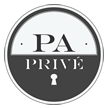There is no question that social media has the power to do great good for billions of people around the world, on both a personal and professional level.
Click here if you need some Personal Assistant CV/PA CV advice.
Yet while social media sites are considered to be beneficial to job seekers, there are instances when social media can lead to rejected resumes and lost opportunities, which can ultimately affect your chances of employment. Here is best advice for avoiding these social media blunders:
Tips to Keep a Professional Image Online
So what can you do (besides cleaning up past posts and checking your privacy settings) to make your social media Timeline work for you in your job search?
Pick a really good cover photo it’s going to be splashed across the front of your timeline.
Take advantage of the “Milestones and Experiences” section to add things like “I learned Italian” or “got an award for top performance”
Do not write anything that you feel is embarrassing or too personal.
Be very selective on who you accept as friends and monitor what other people post about you.
Refrain from posting personal or derogatory comments and angry outbursts anywhere online. You can offer your opinion on any subject matter, but maintain professionalism.
Avoid Inappropriate Content
When employers check your social media profiles, they are looking for clues about your personality that will help them decide whether or not you are the ideal candidate for their company. While your profile on LinkedIn should be useful, platforms like Twitter and Facebook can be harmful if inappropriate content (photographs, posts, comments) exists on your profile.
Don’t drink and share
Don’t share photos or status updates about that great party or overindulging Saturday night bash and your job search. Keep your stream alcohol-free.
Complaining about customers or your boss
It can be tempting to share a bad day at the office with friends, but save work rants for offline.
Delete Inactive accounts
You might have an inactive account on one of the current big social networks. If you do you are not alone, but again it is worth deleting for good.
Be Consistent
Your work and education history that you post online should match what you put on your paper resume. Inconsistencies can lead a company to believe that you are being deceptive.
Know your Privacy Settings
All social media networks have an array of privacy settings that you can tweak with to get a tailored privacy setting depending on what you’d like to share with other individuals.
Being on Twitter 24/7
Unless your job requires you to maintain your company’s feed, you shouldn’t be live-tweeting your day. “This can be a red flag to recruiters. They will start thinking you spend all of your time on social media.
Don’t post confidential information
How you handle privileged information in your current job gives a window to how you might handle it in your next position.
Use The Correct Tone
When it comes to tone, try to use the correct tone depending on the situation. While on Facebook you can have a more casual conversation, services like LinkedIn are built as a professional network. Understand which networks require a certain tone of voice.
How Recruiters Use Social Media to Screen Applicants:
65% checked to see if the candidate presents himself or herself in a professional light.
51% wanted to find out if the candidate would suit the company culture.
45% wanted to find more information about the candidate’s qualifications.
29% were influenced to hire a candidate by a positive Internet profile.
An unstated percentage used social media to see if a candidate was ‘well rounded’ and to find reasons not to hire a particular candidate.
34% found content online that influenced them not to hire the candidate. Around half said that inappropriate or provocative photographs and other information in the candidate’s online profile deterred them from hiring.
Keep a conscious mind! Anything that you say and/or do on a social network is fair game for all the world to see. However, Having a social networking profile is a good thing — it presents you as technologically and professionally savvy.






